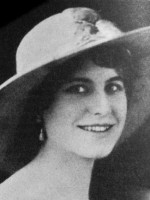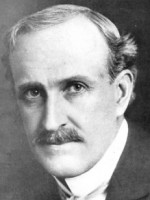Cecil B. DeMille is a Actor, Director, Scriptwriter, Producer, Editor and Presenter American born on 12 august 1881 at Ashfield (USA)

Cecil Blount DeMille (/dəˈmɪl/; August 12, 1881 – January 21, 1959) was an American filmmaker. Between 1913 and 1956, he made seventy features, both silent and sound films. He is acknowledged as a founding father of the Hollywood film industry, the most commercially successful producer-director in cinema history.
DeMille began his career as a stage actor in 1900. One of his first acting jobs was in 1905 at the Historic Elitch Theatre in Denver, CO. He later moved to writing and directing stage productions, some with Jesse Lasky, who was then a vaudeville producer. DeMille's first film, The Squaw Man (1914), was also the first feature film shot in Hollywood. Its interracial love story made it a phenomenal hit and it "put Hollywood on the map." The continued success of his productions led to the founding of Paramount Pictures with Lasky and Adolph Zukor. His first biblical epic, The Ten Commandments (1923), was both a critical and financial success; it held the Paramount revenue record for twenty-five years.
The immense popularity of DeMille's silent films enabled him to branch out. The Roaring Twenties were the boom years and DeMille took full advantage, opening the Mercury Aviation Company, one of America's first commercial airlines. He was also a real estate speculator, an underwriter of political campaigns, and a Bank of America executive, approving loans for other filmmakers.
DeMille's films were distinguished by their epic scale, and by his cinematic showmanship. He made silent films of every genre: social dramas, comedies, Westerns, farces, morality plays, and historical pageants. The King of Kings (1927), his biography of Jesus Christ, was acclaimed for its sensitivity. Although it was a silent film, it circulated in 16mm prints for more than a half century after its release, reaching more than 800 million viewers. The Sign of the Cross (1932) was the first sound film to integrate all aspects of cinematic technique. Cleopatra (1934) was his first film to be nominated for the Academy Award for Best Picture.
After more than thirty years in Hollywood, DeMille reached the pinnacle of his career with Samson and Delilah (1949), a biblical epic which did "an all-time record business." He went on to receive his first nomination for the Academy Award for Best Director for his circus drama The Greatest Show on Earth (1952), which won the Academy Award for Best Picture. His last and most famous film, The Ten Commandments (1956), is currently the seventh highest-grossing film of all-time adjusted for inflation.
In addition to his Best Picture Award, he received an Academy Honorary Award for his film contributions, the Palme d'Or (posthumously) for Union Pacific (film), a DGA Award for Lifetime Achievement, and the Irving G. Thalberg Memorial Award. He was also the first recipient of the Golden Globe Cecil B. DeMille Award, which was later named in his honor.
DeMille married Constance Adams DeMille in 1902, with whom he had one biological child, Cecilia; and three adopted children, Katherine, John, and Richard.
DeMille had an older brother William. Their sister Agnes died in childhood. William later named a daughter after her. Agnes de Mille, the famed dancer-choreographer, was DeMille's niece.
DeMille died of a heart ailment at age 77 in January 1959.
 (1956)
(1956)
(Director)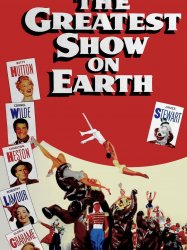 (1952)
(1952)
(Director) (1949)
(1949)
(Director)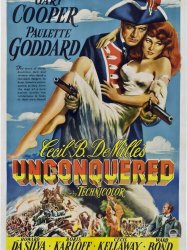 (1947)
(1947)
(Director) (1942)
(1942)
(Director) (1953)
(1953)
(Executive Producer)
Source : Wikidata
Cecil B. DeMille

- Infos
- Photos
- Best films
- Family
- Characters
- Awards
Birth name Cecil Blount DeMille
Nationality USA
Birth 12 august 1881 at Ashfield (USA)
Death 21 january 1959 (at 77 years) at Hollywood (USA)
Nationality USA
Birth 12 august 1881 at Ashfield (USA)
Death 21 january 1959 (at 77 years) at Hollywood (USA)
DeMille began his career as a stage actor in 1900. One of his first acting jobs was in 1905 at the Historic Elitch Theatre in Denver, CO. He later moved to writing and directing stage productions, some with Jesse Lasky, who was then a vaudeville producer. DeMille's first film, The Squaw Man (1914), was also the first feature film shot in Hollywood. Its interracial love story made it a phenomenal hit and it "put Hollywood on the map." The continued success of his productions led to the founding of Paramount Pictures with Lasky and Adolph Zukor. His first biblical epic, The Ten Commandments (1923), was both a critical and financial success; it held the Paramount revenue record for twenty-five years.
The immense popularity of DeMille's silent films enabled him to branch out. The Roaring Twenties were the boom years and DeMille took full advantage, opening the Mercury Aviation Company, one of America's first commercial airlines. He was also a real estate speculator, an underwriter of political campaigns, and a Bank of America executive, approving loans for other filmmakers.
DeMille's films were distinguished by their epic scale, and by his cinematic showmanship. He made silent films of every genre: social dramas, comedies, Westerns, farces, morality plays, and historical pageants. The King of Kings (1927), his biography of Jesus Christ, was acclaimed for its sensitivity. Although it was a silent film, it circulated in 16mm prints for more than a half century after its release, reaching more than 800 million viewers. The Sign of the Cross (1932) was the first sound film to integrate all aspects of cinematic technique. Cleopatra (1934) was his first film to be nominated for the Academy Award for Best Picture.
After more than thirty years in Hollywood, DeMille reached the pinnacle of his career with Samson and Delilah (1949), a biblical epic which did "an all-time record business." He went on to receive his first nomination for the Academy Award for Best Director for his circus drama The Greatest Show on Earth (1952), which won the Academy Award for Best Picture. His last and most famous film, The Ten Commandments (1956), is currently the seventh highest-grossing film of all-time adjusted for inflation.
In addition to his Best Picture Award, he received an Academy Honorary Award for his film contributions, the Palme d'Or (posthumously) for Union Pacific (film), a DGA Award for Lifetime Achievement, and the Irving G. Thalberg Memorial Award. He was also the first recipient of the Golden Globe Cecil B. DeMille Award, which was later named in his honor.
DeMille married Constance Adams DeMille in 1902, with whom he had one biological child, Cecilia; and three adopted children, Katherine, John, and Richard.
DeMille had an older brother William. Their sister Agnes died in childhood. William later named a daughter after her. Agnes de Mille, the famed dancer-choreographer, was DeMille's niece.
DeMille died of a heart ailment at age 77 in January 1959.
Biography
DeMille married Constance Adams on August 16, 1902 and had one child, Cecilia. The couple also adopted an orphan child, Katherine Lester in the early 1920s; her father had been killed in World War I and her mother had died of tuberculosis. Without DeMille's permission, Katherine became an actress at Paramount Pictures, ultimately gaining his approval. On October 3, 1937, Katherine married actor Anthony Quinn. In the 1920s the DeMilles adopted two sons, John and Richard, the latter of whom became a notable filmmaker, writer, and psychologist.Best films
 (1956)
(1956)(Director)
 (1952)
(1952)(Director)
 (1949)
(1949)(Director)
 (1947)
(1947)(Director)
 (1942)
(1942)(Director)
 (1953)
(1953)(Executive Producer)
Usually with
Filmography of Cecil B. DeMille (115 films)
Actor
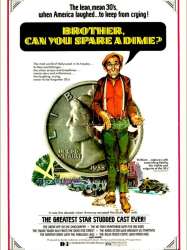 , 1h50
, 1h50Directed by Philippe Mora
Origin United-kingdom
Genres Documentary, Historical
Themes Documentary films about historical events
Actors Walt Disney, Bing Crosby, Marlene Dietrich, Charlie Chaplin, Fred Astaire, James Dunn
Roles Self (archive footage)
Rating70%





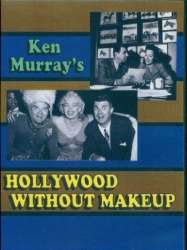
Hollywood Without Make-Up (1963)
Directed by Ken Murray
Origin USA
Genres Documentary
Themes Documentary films about business, Documentary films about the film industry, Documentary films about cities
Actors Kirk Douglas, Ken Murray, Cary Grant, June Allyson, George K. Arthur, Eddie Albert
Roles Self (archive footage)
Rating71%





The film consists of archive footage of famous Hollywood stars, mostly home movies showing the stars as themselves instead of playing a role in front of the camera.
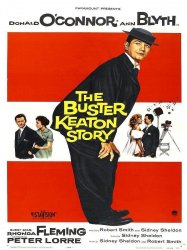
The Buster Keaton Story (1957)
, 1h31Directed by Sidney Sheldon
Origin USA
Genres Drama, Biography, Comedy
Actors Donald O'Connor, Ann Blyth, Rhonda Fleming, Peter Lorre, Larry Keating, Jackie Coogan
Roles Cecil B. DeMille
Rating51%





Le film raconte la vie de l'acteur américain du cinéma muet Buster Keaton.

The Ten Commandments (1956)
, 3h42Directed by Cecil B. DeMille
Origin USA
Genres Drama, Fantastic, Action, Historical, Peplum
Themes Films set in Africa, Films about slavery, Films about religion, La précarité, Films based on the Bible, Films about Jews and Judaism, L'émigration
Actors Charlton Heston, Yul Brynner, Anne Baxter, Edward G. Robinson, Yvonne De Carlo, Debra Paget
Roles Narrator
Rating78%





Pharaoh Rameses I of Egypt has ordered the death of all firstborn Hebrew males after hearing the prophecy of the Deliverer, but a Hebrew woman named Yoshebel saves her infant son by setting him adrift in a basket on the Nile. Bithiah, the Pharaoh's daughter, who had recently lost her husband and the hope of ever having children of her own, finds the basket and decides to adopt the boy even though her servant, Memnet, recognizes the child is Hebrew and protests.
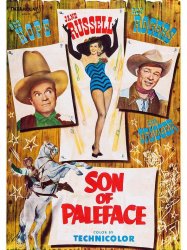
Son of Paleface (1952)
, 1h35Directed by Frank Tashlin
Origin USA
Genres Comedy, Action, Romance, Western
Actors Bob Hope, Jane Russell, Roy Rogers, Lloyd Corrigan, Bill Williams, Douglass Dumbrille
Roles Photographer (uncredited)
Rating67%





Peter "Junior" Potter (Hope) has graduated from Harvard and now heads west to the town of Sawbuck Pass to claim his Daddy's fortune. Driving into town in a jalopy and wearing a comical plaid suit, he splashes mud all over a crowd of townspeople. He also discovers to his horror that practically everyone in town claims to be owed a debt, and that his father's treasure chest is empty.

The Greatest Show on Earth (1952)
, 2h33Directed by Cecil B. DeMille
Origin USA
Genres Drama, Comedy, Comedy-drama, Action, Romance
Themes Circus films, Films about euthanasia, Transport films, Rail transport films
Actors Betty Hutton, Cornel Wilde, Charlton Heston, James Stewart, Dorothy Lamour, Gloria Grahame
Roles Narrator (voice) (uncredited)
Rating64%





Brad Braden is the no-nonsense general manager of what was at the time the world's largest railroad circus. He has a number of problems on his hands for the upcoming season.

Sunset Boulevard (1950)
, 1h50Directed by Billy Wilder, Charles C. Coleman, Gerd Oswald
Origin USA
Genres Drama, Comedy-drama, Noir, Romance
Themes Films about films, Films about writers, Medical-themed films, Psychologie, Films about television, Mise en scène d'un scénariste, Films about psychiatry
Actors William Holden, Gloria Swanson, Erich von Stroheim, Nancy Olson, Robert Emmett O'Connor, Fred Clark
Roles Cecil B. DeMille
Rating83%





At a Sunset Boulevard mansion, the body of Joe Gillis floats in the swimming pool. In a flashback, Joe relates the events leading to his death.

Samson and Delilah (1949)
, 2h11Directed by Cecil B. DeMille
Origin USA
Genres Drama, Fantasy, Adventure, Historical, Peplum, Romance
Themes Films about religion, Films based on the Bible, Films about Jews and Judaism
Actors Hedy Lamarr, Victor Mature, George Sanders, Angela Lansbury, Henry Wilcoxon, Fay Holden
Roles Narrator (uncredited)
Rating67%





Samson, a Danite Hebrew placed under Nazirite vows from birth by his mother Hazelelponit, is engaged to a Philistine woman named Semadar. At their wedding feast, Samson loses a bet with his wedding guests because of Semadar and attacks thirty Philistines to strip them of their cloaks to pay his betting debt. When his deeds become known, Semadar and her father Tubal are killed; Samson becomes a hunted man and in his fury he begins fighting the Philistines. The Saran of Gaza imposes heavy taxes on the Danites, with the purpose of having Samson betrayed by his own people. The Saran's plan works, and frustrated Danites hand over Samson to the Philistines, much to the joy of Delilah, Semadar's younger sister. Samson is taken by Prince Ahtur, the military governor of the land of Dan, and a regiment of Philistine troops. En route back to Gaza, Ahtur decides to taunt Samson. Samson rips apart his chains and ropes and begins to combat the Philistines, toppling Ahtur's war chariot and using the jawbone of an ass to club the Philistine soldiers to death.
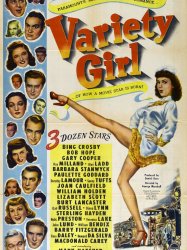
Variety Girl (1947)
, 1h33Directed by George Marshall
Origin USA
Genres Comedy, Musical theatre, Musical
Themes Films about music and musicians, Musical films
Actors Mary Hatcher, Olga San Juan, DeForest Kelley, Frank Ferguson, Bing Crosby, Nella Walker
Roles Cecil B. DeMille
Rating62%






Unconquered (1947)
, 2h26Directed by Cecil B. DeMille, Arthur Rosson
Origin USA
Genres Drama, Action, Adventure, Historical, Romance, Western
Actors Gary Cooper, Paulette Goddard, Howard Da Silva, Boris Karloff, Henry Wilcoxon, Cecil Kellaway
Roles Self - Narrator (voice) (uncredited)
Rating67%





Based on Neil Swanson's Unconquered, a Novel of the Pontiac Conspiracy, the film focuses on "Abby" Hale (Paulette Goddard), who is condemned to death by a British court, then offered clemency if she will become an indentured servant in America. There is a bidding competition between Captain Christopher Holden (Gary Cooper) and Martin Garth (Howard Da Silva), which Holden wins. He then sets her free. Unfortunately, Garth is a sore loser; he kidnaps Abby and takes her to the western frontier, where he is involved in illegal arms sales to the Native Americans. Soon, Holden becomes involved in the conflict with the warring tribes and is reunited with Abby; he also has further confrontations with Garth and his henchman (Mike Mazurki).
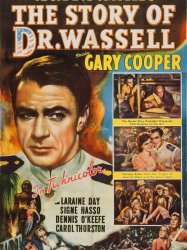
The Story of Dr. Wassell (1944)
, 2h20Directed by Cecil B. DeMille, Arthur Rosson, Oscar Rudolph
Origin USA
Genres Drama, War, Action, Adventure, Romance
Themes Political films
Actors Gary Cooper, Laraine Day, Signe Hasso, Dennis O'Keefe, Paul Kelly, Carol Thurston
Roles Voice of Narrator (uncredited)
Rating65%





Lors de l'offensive japonaise en Indonésie, un médecin originaire de l'Arkansas, le Dr Wassell, chercheur passionné engagé dans la Marine se consacre à soigner les blessés américains d'un navire coulé par les Japonais. Au moment ce l'offensive japonaise sur Java un navire accepte d'embarquer les blessés capables de marcher mais pas la petite douzaine sur des civières. Le Dr Wassell reste avec eux, les ramène à l'hôpital de campagne plusieurs fois bombardé, parvient à les faire transporter par un convoi anglais à travers la jungle, use de la ruse pour les faire monter à bord d'un cargo surchargé et arrive enfin en Australie.

Reap the Wild Wind (1942)
, 2h3Directed by Cecil B. DeMille, Arthur Rosson
Origin USA
Genres Drama, Action, Adventure, Romance
Themes Seafaring films, Transport films
Actors Ray Milland, John Wayne, Paulette Goddard, Robert Preston, Susan Hayward, Charles Bickford
Roles Prologue Speaker (voice) (uncredited)
Rating65%





Au milieu du XIX siècle, seuls les grands voiliers ont la possibilité, avant l'arrivée du chemin de fer, d'assurer la liaison entre le Nord-Est des États-Unis et la vallée du Mississippi. Mais il faut tenir compte des récifs de Floride, où s'échouent les navires. Pilleurs d'épaves et sauveteurs s'affrontent...
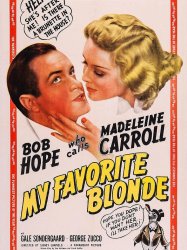
My Favorite Blonde (1942)
, 1h18Directed by Frank Butler, Sidney Lanfield
Origin USA
Genres Comedy, Spy
Themes Spy films, Transport films, Rail transport films, Road movies, Chase films
Actors Bob Hope, Madeleine Carroll, Gale Sondergaard, George Zucco, Macdonald Carey, Walter Kingsford
Rating69%





When a British secret agent is murdered in the line of duty, agent Karen Bentley inherits the mission from her partner. The mission is to deliver a flight plan for a hundred American bomber planes to a British agent in Chicago. The plans are hidden in a small medallion of a scorpion that Karen wears.
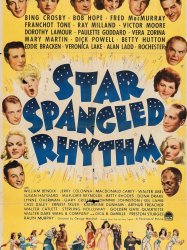
Star Spangled Rhythm (1942)
, 1h39Directed by Ralph Murphy, George Marshall, Frank Tuttle, A. Edward Sutherland, Lewis Allen
Origin USA
Genres Comedy, Musical
Themes Films about music and musicians, Musical films
Actors Betty Hutton, Eddie Bracken, Victor Moore, Walter Abel, Anne Revere, Cass Daley
Roles Cecil B. DeMille
Rating65%





Pop Webster (Victor Moore) is a former silent movie star once known as "Bronco Billy" who now works as the guard on the main gate at Paramount Pictures. However, he's told his son Johnny (Eddie Bracken), who's in the Navy, that he's the studio's Executive Vice President in Charge of Production. When Johnny shows up in Hollywood on shore leave, Pop and the studio's switchboard operator Polly Judson (Betty Hutton) go all-out to maintain the illusion for Johnny and his sailor friends that Pop's a studio big-wig. Things get a bit complicated when Pop offers to put on a variety show for the Navy, featuring all of Paramount's stars, but Polly convinces Bob Hope and Bing Crosby to do the show, and they convince the rest of the stars on the lot.

North West Mounted Police (1940)
, 2h6Directed by Cecil B. DeMille, Arthur Rosson
Origin USA
Genres Drama, Action, Adventure, Historical, Romance, Western
Actors Gary Cooper, Paulette Goddard, Madeleine Carroll, Preston Foster, Robert Preston, George Bancroft
Roles Narrator (voice) (uncredited)
Rating62%





Texas Ranger Dusty Rivers (Gary Cooper) is sent to Canada during the 1880s in pursuit of outlaw Jacques Corbeau (George Bancroft), arriving in the midst of the Riel Rebellion. Dusty meets nurse April Logan (Madeleine Carroll) and quickly falls in love with her. However, she is already involved with Canadian Mountie Sergeant Jim Britt (Preston Foster). Dusty and April have become involved with one another, which becomes evident to Jim, to whom April wishes to remain loyal.
 Connection
Connection
